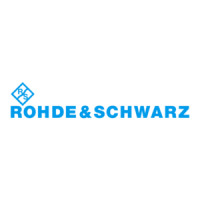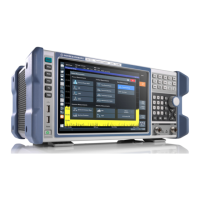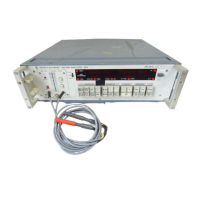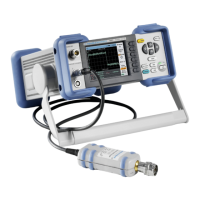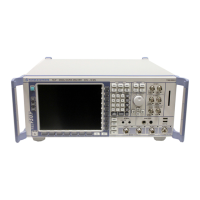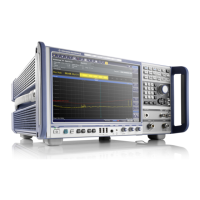Getting Started
R&S
®
ZNA
85User Manual 1178.6462.02 ─ 29
To suppress electromagnetic radiation during operation:
●
Use high-quality shielded RF cables.
●
Always terminate open cable ends.
Signal input and output levels
Information on signal levels is provided in the data sheet. Keep the signal levels within
the specified ranges to avoid damage to the product and connected devices.
Preventing electrostatic discharge (ESD)
Electrostatic discharge is most likely to occur when you connect or disconnect a DUT.
►
NOTICE! Electrostatic discharge can damage the electronic components of the
product and the device under test (DUT).
Ground yourself to prevent electrostatic discharge damage:
a) Use a wrist strap and cord to connect yourself to ground.
b) Use a conductive floor mat and heel strap combination.
3.5.4 System tour
3.5.4.1 Vector network analyzer R&S ZNA67
The VNA system R&S ZNA67EXT is based on a two- or four-port vector network ana-
lyzer R&S ZNA67, order no. 1332.4500Kyy, either with two ports (yy=62) or with four
ports (yy=64), and equipped with:
●
Dedicated LO output connector (HW option R&S ZNA-B8)
See Chapter 4.7.25, "LO Out", on page 305.
●
Direct generator/receiver access (HW option R&S ZNA67-B16)
See Chapter 4.7.27, "Direct generator/receiver access", on page 306.
●
Direct IF access (HW option R&S ZNA-B26)
See Chapter 4.7.30, "Direct IF access", on page 308.
●
Receiver step attenuators R&S ZNA67-B3y at all test ports
See Chapter 4.7.31, "Receiver step attenuators", on page 309.
●
SW option R&S ZNA-K8 "Frequency converter control"
See Chapter 4.7.7, "Millimeter-wave converter support", on page 281.
●
SW option R&S ZNA67-K110 "Continuous Sweep up to 110 GHz for R&S ZNA67"
See Chapter 4.7.14, "Continuous sweep up to 110 GHz (R&S ZNA67EXT only)",
on page 297.
SW option R&S ZNA67-K110 is only available with the R&S ZNA67EXT. It cannot be
installed on a regular R&S ZNA67.
Getting started with R&S
ZNA67EXT
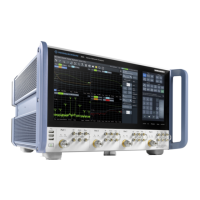
